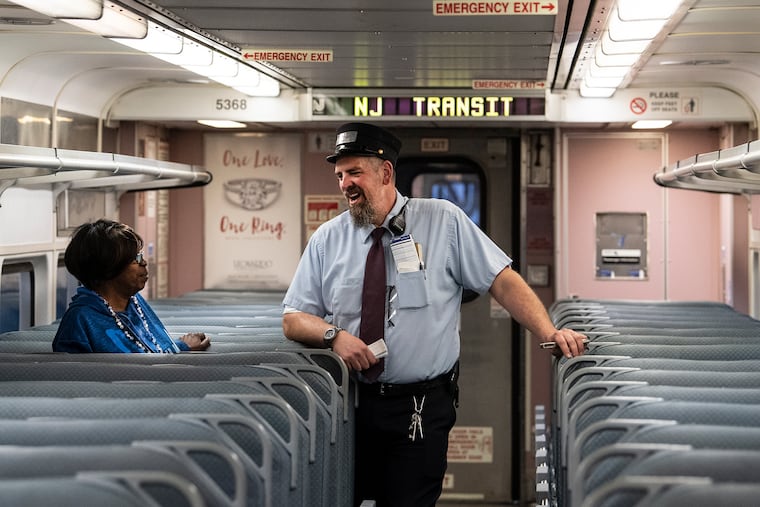Dispute between NJ Transit and engineers’ union could lead to a July strike or lockout after federal mediation fails
NJ Transit said it would seek a presidential emergency board, which would postpone a work stoppage.

NJ Transit’s unionized railroad engineers could strike or the company could lock them out as the National Mediation Board said Tuesday that it has released the two sides from further mandated contract talks, triggering a 30-day “cooling off” period.
That means commuter trains that tie New Jersey and New York together could stop running as early as July 25, said the mediation board, which governs labor relations in the railroad and airline industries.
President Joe Biden must order a presidential emergency board to intervene in the bitter contract dispute at the request of either party or the governor of an affected state, delaying a work stoppage for 120 more days as the board gathers facts and recommends a settlement. NJ Transit said it will request the appointment of an emergency board.
NJ Transit and the Brotherhood of Locomotive Engineers and Trainmen had been in mediation talks for three years, and the engineers have been working without a contract since October 2019.
“Our members are angry and feel betrayed,” said Eddie Hall, national president of the BLET. “Locomotive engineers kept the trains running during the pandemic [and] have gone five years without a pay raise during a period of high inflation. … They have had enough.”
The union is demanding that NJ Transit increase the pay scale for its engineers to match the pay earned by their counterparts at other commuter railroads in the Northeast region.
“We are extremely disappointed,” the transit agency said in a statement. “NJ Transit has and will continue to engage in good-faith negotiations that fairly and best represent … hundreds of thousands of customers, as well as New Jersey taxpayers, in light of our widely-known budgetary realities.”
The agency says it faces a $118 million budget deficit in 2025 and projects a $917 million shortfall in 2026. Fares are scheduled to rise 15% beginning July 1 and 3% every year thereafter under a plan adopted by the NJ Transit Board.
NJ Transit said in the statement that BLET, which represents 494 engineers, is the only one of 15 rail unions that has not accepted what the agency says is a fair contract offer.
The engineers last August unanimously authorized Hill to call a strike. But because rail service interruptions affect interstate commerce, federal law requires a lengthy, multistep process before workers can strike or employers can lock out workers.
NMB made its decision Monday to step away after the engineers’ union declined an offer of binding arbitration.
Under federal law for commuter railroads, the union, NJT, or the governor of a state that would be affected by a service interruption can request Biden appoint an emergency board. The union and company could also reach an agreement before the July deadline, and likely would face political pressure to do so.
In December 2022, Congress blocked 115,000 freight rail workers from going on strike and forced them to accept a five-year contract that included 24% raises and $5,000 in bonuses but didn’t address their biggest concern: onerous work rules.
The deal was negotiated by a presidential emergency board appointed by the White House under the Railway Labor Act. Biden and congressional leaders said they imposed the terms because an interruption in freight service would have damaged the economy.
This article has been updated to include more information from NJ Transit as well as more detail about the role of the federal government.